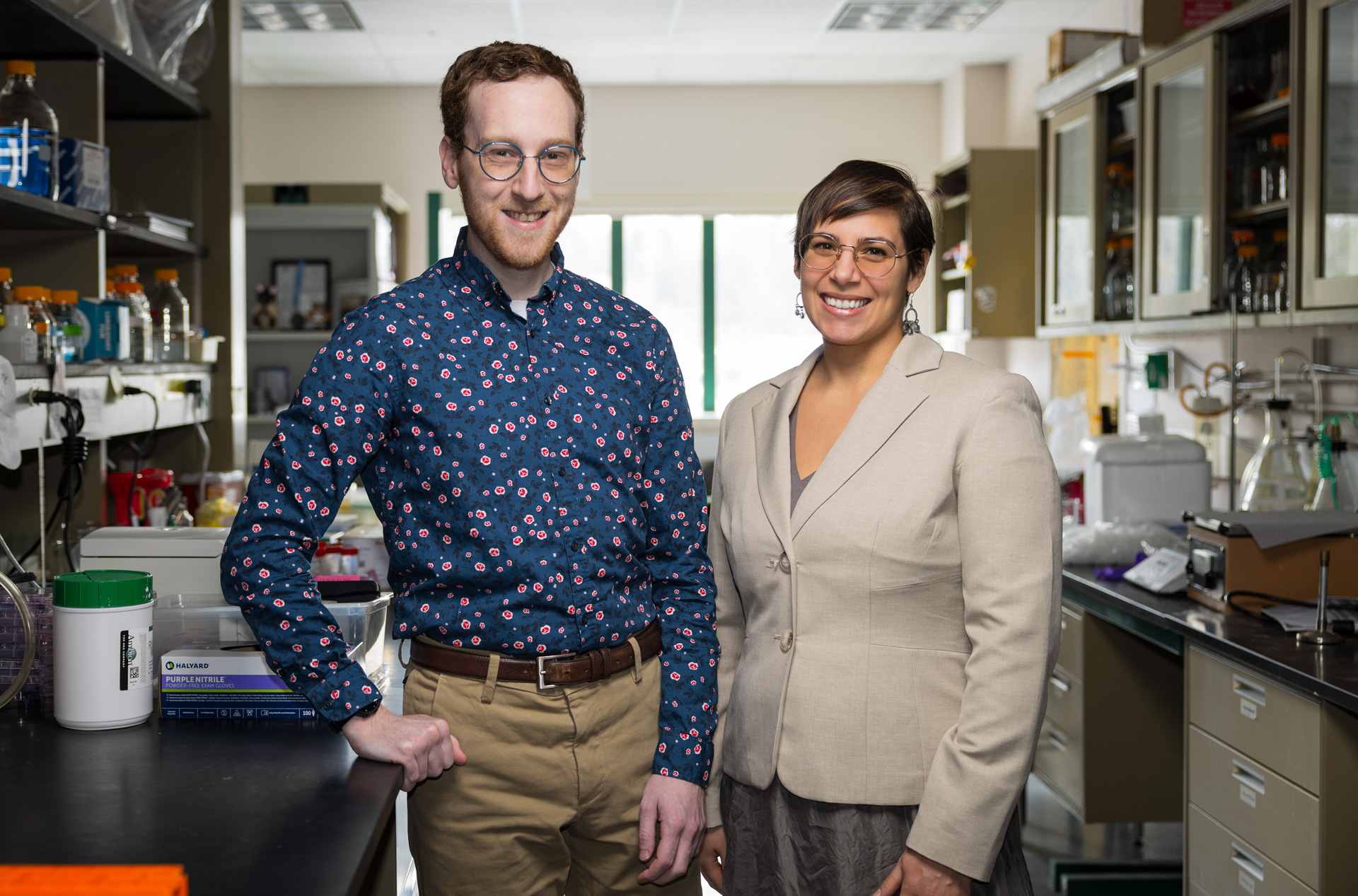Findings from a new study conducted by a team of researchers at Dartmouth’s Geisel School of Medicine and Thayer School of Engineering and published in Cell Reports Medicine, offer new insights into how antibodies function in combating herpes simplex virus (HSV) infections. Their research may lead to possible new treatments for neonatal herpes.
Herpes simplex virus infections are common and typically affect the skin and the nervous system. They are caused by two related but distinct viruses—type 1 (HSV-1) which more commonly causes infections around the mouth and occurs in up to 80-90 percent of older adults, and type 2 (HSV-2) which more commonly causes genital infections and can be found in 20-30 percent of adults.
While these viruses often lay dormant in the body and usually don’t pose serious health risks, HSV can be more dangerous for those with weak immune systems. In some cases, HSV can cause corneal blindness and brain infections, and may also have an association with neurodegeneration and Alzheimer’s disease. Neonatal herpes simplex virus infections are particularly devastating—severe infections can spread to internal organs and the brain—and are one of the deadliest neonatal infections.

“Despite three decades of trying, the scientific community has been unable to develop an effective vaccine against herpes, and I think the main issue has been that we haven’t fully understood what we need, in terms of antibodies and their specific functions, to protect against this disease,” explains David Leib, PhD, chair and professor of microbiology and immunology at Geisel, who served as a corresponding author on the study along with Margaret Ackerman, PhD, professor of engineering at Thayer.
As they often have in the past, Leib and Ackerman partnered on the project, combining the expertise and resources of their labs while co-supervising the work of Matthew Slein, a PhD candidate in the Leib and Ackerman labs, and Iara Backes, an MD-PhD student at Geisel, who served as co-first authors on the study. "It has been really rewarding to train students like Matt and Iara at the intersection of molecular engineering and medicine, and to see how their work has the potential to inform and change clinical practice," says Ackerman.
In their experiments, the research team used a neonatal mouse model to mimic human neonatal infections—engineering antibodies with different properties to explore how they mediate protection. “What Matt and Iara have discovered is something unexpected, says Leib. “It’s not just the neutralizing capability of antibodies, that is, their ability to bind directly to the virus and prevent it from entering the cell, that is important. Effector functions, which allow the antibodies to interface with other parts of the immune system, also play a critical role—one that has been largely overlooked in the past.”
Slein and Backes also found key differences between HSV-1 and HSV-2 infections and that each requires different antibody properties for optimal protection. Importantly, their results point to a better way to design vaccines and may help to explain why many vaccine candidates have failed to be protective in clinical trials in the past.
“Another important aspect of the work that Matt and Iara have done is that we now have some really good monoclonal antibodies that we’ve made in the lab that could potentially be used directly as a medication to treat acute neonatal herpes infections, which are life-threatening to newborns,” says Leib.
“Monoclonal antibodies have been used to treat cancer and other diseases and show promise as a therapy for infectious disease,” he says. “This would be a wonderful development, as antiviral drugs like acyclovir have only proven to be partially effective in treating these very sick kids.”
Founded in 1797, the Geisel School of Medicine at Dartmouth strives to improve the lives of the communities it serves through excellence in learning, discovery, and healing. The Geisel School of Medicine is renowned for its leadership in medical education, healthcare policy and delivery science, biomedical research, global health, and in creating innovations that improve lives worldwide. As one of America’s leading medical schools, Dartmouth’s Geisel School of Medicine is committed to training new generations of diverse leaders who will help solve our most vexing challenges in healthcare.
About Dartmouth Engineering
Thayer School of Engineering at Dartmouth, founded in 1867, works to better the world through research and education with human-centered impact. Serving as a hub for scholarship and innovation, Dartmouth Engineering prepares the next generation of leaders through undergraduate and graduate degree programs that foster learning and discovery both within and across disciplines. Home to the nation's first PhD Innovation Program, Dartmouth Engineering is a leader in creating engineers with both technical and entrepreneurial expertise to tackle the most pressing issues of our time. Learn more at engineering.dartmouth.edu and find us on Twitter, Facebook, and Instagram (@thayerschool).